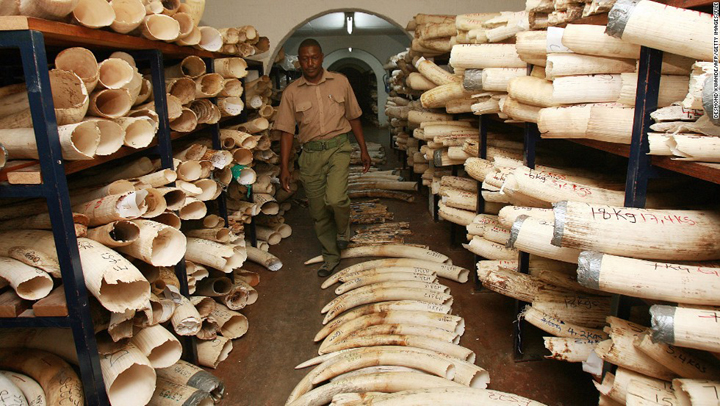 Zimbabwe is sitting on a stockpile of ivory worth US$700 million which it cannot sell because of the ban on the sale of ivory by the Convention on International Trade in Endangered Species (CITIES) in 1989.
Zimbabwe is sitting on a stockpile of ivory worth US$700 million which it cannot sell because of the ban on the sale of ivory by the Convention on International Trade in Endangered Species (CITIES) in 1989.
The country is, however,facing increasing challenges in human wildlife conflict with at least 35 people being killed by wildlife and more than 80 injured last year.
This was said by Environment, Climate Change and Wildlife Minister Sithembiso Nyoni in Parliament yesterday after she was asked what the government was doing to compensate communities around the Hwange National Park who lost domestic livestock and human lives due to wildlife conflict.
Nyoni said people living near the park were facing increased conflict because the animal population was on the increase.
The number of elephants in Matebeleland North, for example, increased by 12 221 in just one year between 2021 and 2022.
She said the government was setting up a wildlife conflict relief fund to help families of those killed during the conflict.
Nyoni said Zimbabwe would also benefit from its wildlife conservation if it was allowed to sell its ivory and was done in 1997 and 2008.
“As I speak, we have a whole pool of ivory with a stock net worth of USD 700 million that we are not allowed to sell,” she said.
Q&A:
HON. BONDA asked the Minister of Environment, Climate Change and Wildlife to explain to the House the Ministry’s plans to compensate communities living around Hwange Parks who lost domestic livestock and human lives due to human wildlife conflict.
THE MINISTER OF ENVIRONMENT, CLIMATE CHANGE AND WILDLIFE (HON. DR. NYONI): I would like to thank the Hon. Member for this very important and pertinent question that my Ministry is seized with, and is in a process of establishing human wildlife conflict relief fund. A point of emphasis to the Hon. Members is that there can never be any compensation for any lost life. I commiserate with the loss of human life in encounters between humans and wildlife.
Zimbabwe continues to face numerous challenges of increased human wildlife conflict that threaten people’s safety and their livelihoods. In 2023 alone, more than 35 people were killed by wildlife and more than 80 were injured. The consequences of human wildlife conflict are more serious in wildlife areas such as communities around Hwange National Parks. People lose livestock and crops and yet these are an important part of their livelihoods and incomes, apart from them themselves losing lives.
Continued next page
(112 VIEWS)

